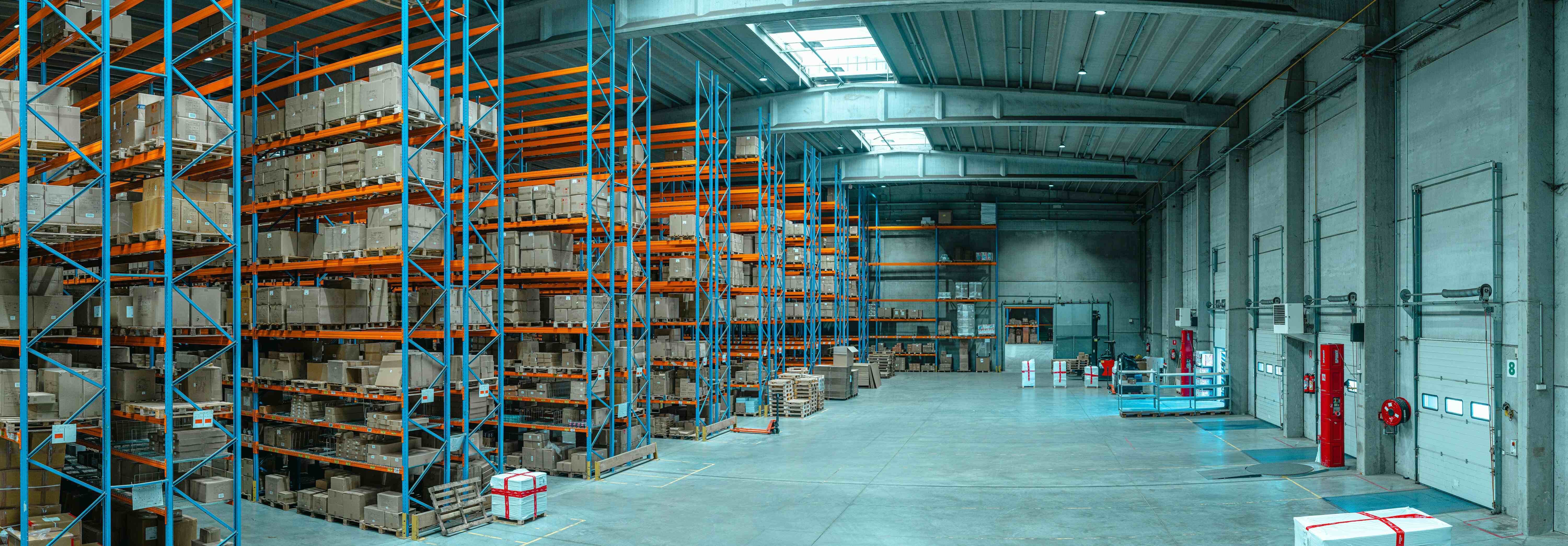Trends Shaping Procurement and Supply Chain Recruitment
11 Nov, 20248 minsThe procurement and supply chain management space is undergoing significant changes, reshapi...

The procurement and supply chain management space is undergoing significant changes, reshaping the skills required for success. The rapid advancement of technology has created a demand for a broader and more diverse skill set. Additionally, the growing emphasis on sustainability has highlighted the importance of procurement professionals being well-versed in green practices and methodologies.
Our guide will explore the key trends that are driving change in procurement and supply chain recruitment. Is your business prepared to tackle these changes?
Digital Transformation
With technology advances, the way procurement and supply chain roles are carried out is shifting too. This change is also reshaping recruitment as companies now seek professionals skilled in the latest technologies.
Automation
AI’s influence has been felt across many industries. In some instances, it has resulted in the loss of jobs. KPMG simulations illustrate that AI has the capability to automate around 50-80% of procurement work. This has meant that procurement professionals have been alleviated of repetitive tasks, but in turn, it’s created the need for new skill requirements. This might include the following:
Data Science
Contemporary procurement and supply chain jobs depend upon cutting-edge data science methods to improve decision-making and optimise operations. Here are some examples of how:
- Demand Forecasting: Many companies rely on machine learning algorithms to study data and market trends and predict future demand for products and services. With access to this information, companies can enhance inventory management (avoid stockouts and overstocking) and elevate production planning.
- Supplier Performance: Procurement professionals develop and use tools to track supplier performance using KPIs. They will also design reports that visually represent metrics so that potential risks to the supply chain can be identified and rectified. These advancements and skills support procurement teams in making informed decisions regarding supplier selection.
- Route and Network Optimisation: A key element of procurement strategy is finding the most efficient transportation routes, which can save companies time and money and also have a positive environmental impact. This can be achieved by leveraging AI to analyse weather, fuel costs, traffic, and delivery deadlines.
E-Procurement Systems
In an increasingly digital age, procurement specialists must also be adept at utilising software solutions designed to streamline procurement processes. They can be integrated with a company’s existing systems and aid the procurement lifecycle, including supplier selection, bidding, ordering, and payment.
An Overview of Key E-Procurement Functions
- Supplier Management: These systems handle supplier information and allow procurement teams to monitor performance, compliance and relationships in a unified database.
- Requirement Definition and Approval: Procurement specialists can create purchase requisitions that then go through approval workflows. This process is key as it ensures compliance with purchasing policies and budget allocations.
- Bidding and Sourcing: Transparent competition between suppliers is achieved via electronic bidding and reverse auctions.
- Purchase Order (PO) Management: Following successful approvals, these digital systems create and track purchase orders with great accuracy and a reduced need for paperwork.
- Invoice and Payment Processing: e-Procurement systems refine invoicing processes by matching invoices with POs and goods received. This speeds up payments and builds a rapport with vendors.
- Analytics and Reporting: As discussed earlier, data is crucial to modern procurement strategy. These systems can monitor spending, supplier performance, and compliance, which allows companies to make data-informed decisions.
Need expert talent solutions to bring the talent you need to stay ahead? Speak to our Procurement and Supply Chain recruitment team.
Sustainability and Ethical Considerations
Consumers and society have become more conscious of their role regarding climate change; 73% of global consumers say they would change their consumption behaviour to change their impact on the environment. There’s an increased expectation that procurement and supply chain jobs adhere to sustainable practices.
Recognising this, companies are improving their efforts to incorporate Environmental, Social, and Governance (ESG) principles into their procurement strategy for long-term success and to satisfy stakeholder expectations.
This shift to sustainable methods means Corporate Social Responsibility (CSR) regulations are being implemented into an organisation’s procurement processes and decision-making.
Corporate Social Responsibility (CSR)
CSR is prevalent in procurement and supply chain management, which means that social, environmental, and ethical considerations are woven into processes. Companies that do so demonstrate responsible operations, enhance reputation, improve loyalty, and mitigate risks. Here are the prime CSR components:
Environmental Responsibility
- Sustainable Sourcing: Raw materials and products must be sourced responsibly and without hampering the environment.
- Reducing Carbon Footprint: Greenhouse gas emissions must be kept to a minimum throughout the supply chain process, including using eco-friendly suppliers and logistics providers. For example
- Waste Management: Procurement and supply chain professionals must strive to use suppliers committed to reducing waste production, recycling materials, and creating reusable products.
Social Responsibility
- Labour and Human Rights: Procurement teams must ensure suppliers comply with labour laws and human rights and provide fair wages and safe working conditions.
- Community Impact: Procurement companies will support suppliers and businesses in communities where the company is operational.
- Health and Safety: Procurement professionals are required to ensure suppliers provide relevant PPE for their employees and abide by industry standards to reduce accidents.
Ethical Responsibility
- Anti-Corruption: Anti-corruption policies are imperative. This includes a zero-tolerance approach to bribery and unethical negotiation tactics.
- Transparent Supplier Relationships: Procurement teams will build honest partnerships with suppliers and insist on transparency in sourcing, pricing and contractual agreements.
- Compliance and Audits: Frequent supplier audits will be conducted to ensure compliance with ethical, social and environmental standards.
What Skills are Needed for Sustainable Procurement?
As discussed, responsible procurement is critical, and when companies hire, it’s essential that procurement professionals have the necessary skills to be proficient in the digital era. Here are some examples:
In-Depth Environmental and Sustainability Knowledge
- Life Cycle Assessment (LCA): Professionals must understand how to properly evaluate the environmental impacts of products and services. This is known as a ‘cradle-to-grave’ analysis and is essential when concerning CSR principles.
- Familiarity with Sustainability Standards: Being knowledgeable of standards such as ISO 14001, LEED, and GRI is vital to ensure compliance is consistently met.
- Carbon Footprint Analysis: Reducing carbon emissions is imperative. Therefore, procurement specialists are expected to calculate and mitigate emissions within the supply chain.
Sourcing Sustainable Suppliers
- Supplier Assessment: A thorough evaluation of suppliers is essential to ensure they meet green procurement standards. This involves assessing their sustainability practices, environmental certifications, and commitment to reducing carbon footprints throughout their operations.
- Green Contracting: Procurement professionals need the expertise to develop contracts that clearly outline sustainability requirements. To hold suppliers accountable, these contracts should specify environmentally friendly materials, ethical sourcing practices, and waste management protocols.
- Cost-Benefit Analysis: While prioritising environmental considerations is vital, procurement teams must carefully weigh these against financial constraints. A balanced approach is required to achieve both sustainability goals and budgetary compliance, ensuring value without compromising ecological objectives.
Technological Expertise
- Software Tools: Confidence in managing sustainability initiatives with tools like SAP’s sustainability solutions and Enablon.
- Green Logistics: Must have knowledge of renewable energies, electric vehicles and waste-reduction technologies, including paperless transactions that can be facilitated through e-Procurement systems.
What Skills Are Needed to Build Resilient Supply Chains?
A resilient supply chain is one that can both anticipate and bounce back from disruptions while staying operational and meeting customer demands. Now, let’s take a look into the key skills needed to strengthen and support those supply chains.
Essential Skills to Solidify Supply Chains
Building a resilient supply chain takes a combination of technical, analytical and strategic skills.
Risk Management
- Identifying Risks: Spotting potential risks to supply chains is essential. This includes anything from natural disasters and geopolitical issues to cybersecurity threats, which are becoming more relevant as digital transformation accelerates and even supplier failures. Staying ahead of these challenges requires continuous monitoring and being ready to act fast.
- Planning: It’s all about having a game plan. Businesses need to create and possibly roll out strategies to handle disruptions like shipping delays, supplier shortages, or production shutdowns. This involves thinking ahead, mapping out key parts of the supply chain, and making sure everyone is on the same page to respond quickly.
- Mitigation Strategies: Knowing how to tackle disruptions is key. Multi-sourcing, working with more than one supplier, and nearshoring, where suppliers are closer to home, are effective strategies to reduce risks.
Data Analytics
- Predictive Analytics: Technology has meant data can be used by procurement specialists to predict demands and implement preventative measures against possible disruptions.
- Real-Time Monitoring: Ulitising systems to enable real-time tracking of inventory and shipments.
Supply Chain Design
- Network Efficiency: Ensure that supply chain networks are resilient but cost-effective.
- Inventory Management: Procurement teams must follow best practices so that contingency stock is available in the event of disruptions.
Final Say: Trends Shaping Procurement and Supply Chain Hiring
Technology continues to reshape procurement and supply chain roles. The digital transformation has brought about automation and data-driven strategies that have streamlined procurement processes, allowing professionals to focus more on strategic tasks. However, this shift also creates a need for new skills, such as expertise in data science and a deep understanding of e-procurement systems, to fully harness the potential of these technologies.
Sustainability and ethical considerations have also generated a need for new procurement skills. The implementation of ESG and CSR principles has become core to meeting stakeholder reputations and building a reputable brand image. It’s equally important that procurement teams have the ability to galvanise supply chains to overcome any disruptions.
As this industry continues to advance, procurement and supply chain recruitment have also changed. There’s an evident shift in skill sets that are required for companies to get the most out of tech and meet sustainable targets.
Does your workforce have the skills it needs to stay future-proof and drive sustainable success in your markets? If not, we are here to help. Discover our services.
Need Future-focused Talent? W Talent are Ready to Support
W Talent has leading consultants who are dedicated to providing effective solutions tailored to your needs. Whether you’re a start-up or a large corporation, we have industry expertise and an extensive network to deliver impactful results.
To learn how we can help your business, visit our dedicated procurement and supply chain page or contact us today and connect with a team member.




